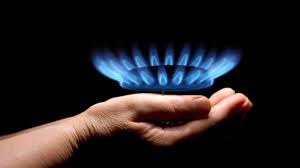With Russian gas shipments still running at significantly reduced rates due to the Ukraine war, European nations revealed fresh steps on Monday to deal with anticipated energy shortages this winter and raced to upgrade energy networks to share power.
While France announced it was preparing to send gas to Germany starting in October, Spain developed plans that could force energy-intensive industries to shut down during periods of high demand. Berlin claimed Europe’s economic powerhouse was still in discussions regarding state aid for struggling utility Uniper.
For the first time since the Nord Stream 1 pipeline was shut down three weeks ago, German purchasers momentarily reserved capacity on Monday to receive Russian gas through the network, which was previously one of Europe’s key gas supply lines. But they eventually stopped making the demands.
It wasn’t immediately clear why purchasers had requested capacity when Russia had shown no indication that the line will reopen any time soon after being shut down.
Before its invasion of Ukraine in February, Russia supplied nearly 40% of the gas used in the European Union. According to Russia, it shut down the pipeline because Western sanctions made it difficult to operate. Politicians in Europe claim it is a ruse and charge Moscow with using energy as a weapon.
Due to a decrease in Russian supplies, European gas prices TRNLTTFMc1 have more than doubled since the beginning of the year.
Despite being greatly cut, Russian gas deliveries to Europe via Ukraine have persisted.
However, due to the dramatic decline in Russian fuel exports brought on by Western sanctions over Moscow’s invasion of Ukraine, governments are now scurrying to find new supplies of energy while also issuing warnings that power outages may occur amid recessionary fears.
According to the country’s central bank, the German economy is already declining and will probably get worse over the winter as gas consumption is reduced or rationed. In addition, it stated that if businesses reduce or stop production, the economy is likely to contract even if outright rationing is avoided.
Following a declaration by President Emmanuel Macron that the two EU neighbors will assist one another with electricity and gas flows during the crisis, the director of France’s CRE energy regulator suggested that natural gas shipments to Germany might begin around October 10.
According to CRE CEO Emmanuelle Wargon, “Gas was (until recently) just flowing from Germany to France, so we did not have the technical instruments to reverse the flows and we even did not have a method to manage prices.”
NOT AGAIN
While French energy company EDF is rushing to fix nuclear reactors damaged by corrosion, Wargon warned that “extraordinary” measures this winter may involve localized power outages if the weather is harsh and EDF’s preparations are delayed.
“However, household gas prices won’t be reduced. Never, she affirmed.
Reyes Maroto, the minister of industry for Spain, stated that forcing energy-intensive businesses to shut down during periods of high usage is a possibility this winter.
In an interview with the Spanish news agency Europa Press, she stated that the enterprises will receive financial compensation and that such closures were not necessary at this time.
Finns were also advised to be ready for power interruptions.
Because there are many unknowns, national grid operator Fingrid advised Finns to be ready for power disruptions brought on by a potential power shortfall in the upcoming winter.
Finnish power retailer Karhu Voima Oy announced it has filed for bankruptcy due to a substantial increase in electricity prices, reflecting the disruptions experienced across the continent.
COAL
Analysts predicted on Monday that Europe’s thermal coal imports in 2022 might be the most in at least four years and could increase much more the following year, underscoring the severity of the energy crisis caused by sanctions against the continent’s primary source, Russia.
Rodrigo Echeverri, chief of research at Noble, stated during a seminar that “Europe is heading back in time.”
The U.S. dollar’s strength and prospects of weaker global demand both contributed to Monday’s more than 1% dip in oil prices; however concerns over supply restrained the drop.
Forecasts for reduced demand, such as the International Energy Agency’s prediction this week that there will be no demand growth in the fourth quarter, have also put pressure on oil prices.

















